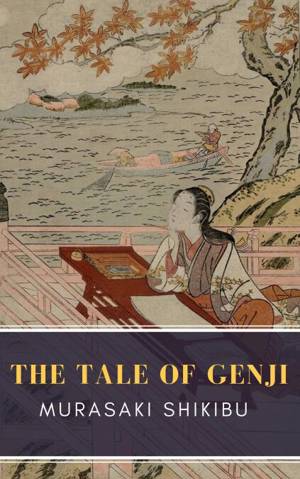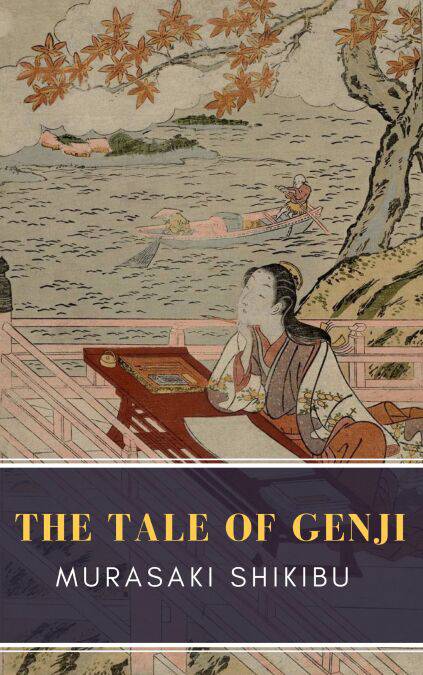
- Afhalen na 1 uur in een winkel met voorraad
- Gratis thuislevering in België vanaf € 30
- Ruim aanbod met 7 miljoen producten
- Afhalen na 1 uur in een winkel met voorraad
- Gratis thuislevering in België vanaf € 30
- Ruim aanbod met 7 miljoen producten
Zoeken
Omschrijving
The Tale of Genji (源氏物語 Genji monogatari) is a classic work of Japanese literature written by the noblewoman and lady-in-waiting Murasaki Shikibu in the early years of the 11th century. The original manuscript no longer exists. It was made in "concertina" or "orihon" style: several sheets of paper pasted together and folded alternately in one direction then the other, around the peak of the Heian period. The work is a unique depiction of the lifestyles of high courtiers during the Heian period, written in archaic language and a poetic and confusing style that make it unreadable to the average Japanese without dedicated study. It was not until the early 20th century that Genji was translated into modern Japanese, by the poet Akiko Yosano. The first English translation was attempted in 1882, but was of poor quality and incomplete.
The work recounts the life of Hikaru Genji, or "Shining Genji", the son of an ancient Japanese emperor, known to readers as Emperor Kiritsubo, and a low-ranking concubine called Kiritsubo Consort. For political reasons, the emperor removes Genji from the line of succession, demoting him to a commoner by giving him the surname Minamoto, and he pursues a career as an imperial officer. The tale concentrates on Genji's romantic life and describes the customs of the aristocratic society of the time. It is sometimes called the world's first novel, the first modern novel, the first psychological novel or the first novel still to be considered a classic. While regarded as a masterpiece, its precise classification and influence in both the Western and Eastern canons has been a matter of debate.
The work recounts the life of Hikaru Genji, or "Shining Genji", the son of an ancient Japanese emperor, known to readers as Emperor Kiritsubo, and a low-ranking concubine called Kiritsubo Consort. For political reasons, the emperor removes Genji from the line of succession, demoting him to a commoner by giving him the surname Minamoto, and he pursues a career as an imperial officer. The tale concentrates on Genji's romantic life and describes the customs of the aristocratic society of the time. It is sometimes called the world's first novel, the first modern novel, the first psychological novel or the first novel still to be considered a classic. While regarded as a masterpiece, its precise classification and influence in both the Western and Eastern canons has been a matter of debate.
Specificaties
Betrokkenen
- Auteur(s):
- Uitgeverij:
Inhoud
- Aantal bladzijden:
- 1224
- Taal:
- Engels
Eigenschappen
- Productcode (EAN):
- 9782379261497
- Verschijningsdatum:
- 4/04/2019
- Uitvoering:
- E-book
- Beveiligd met:
- Digital watermarking
- Formaat:
- ePub

Alleen bij Standaard Boekhandel
Beoordelingen
We publiceren alleen reviews die voldoen aan de voorwaarden voor reviews. Bekijk onze voorwaarden voor reviews.











